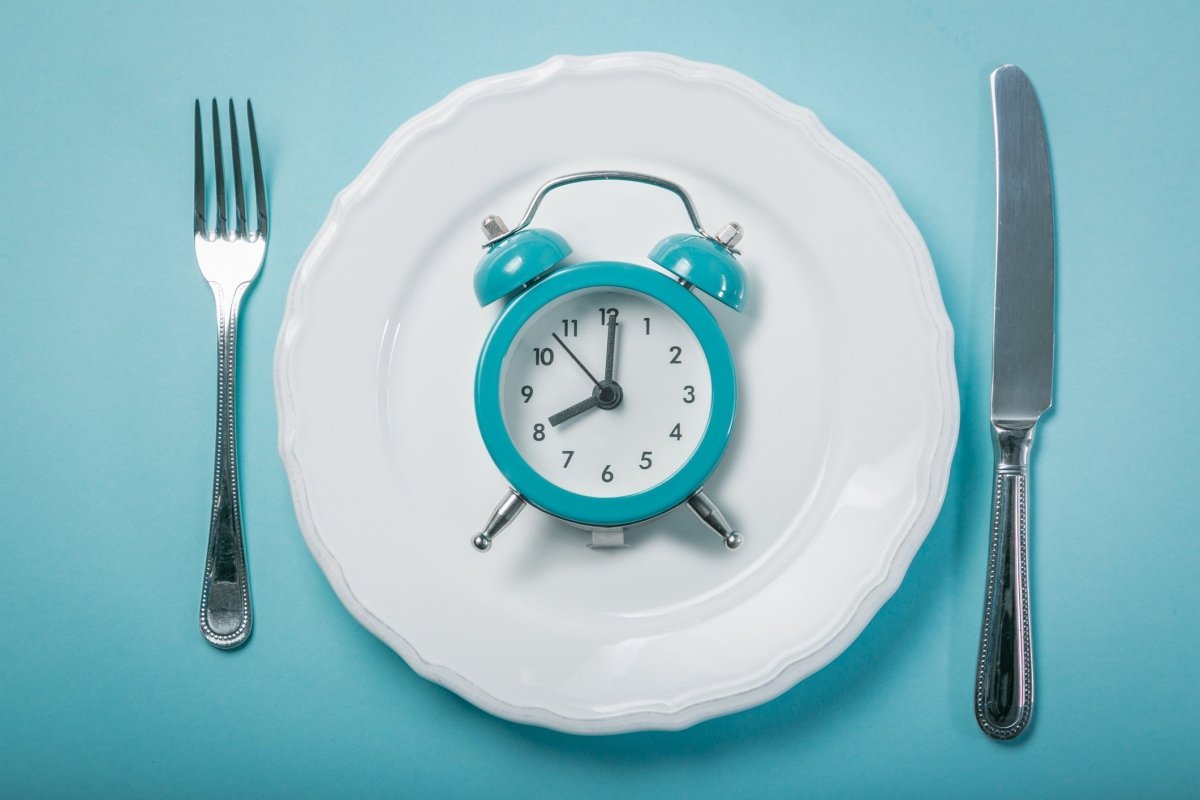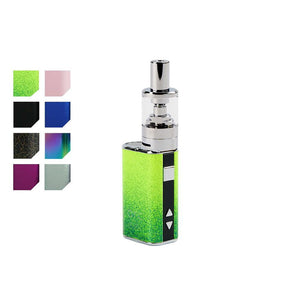Does vaping break intermittent fasting, The ultimate guide.

Does Vaping Break a Fast? The Ultimate Guide for Intermittent Fasting Vapers
Meta Description: Uncover the truth about vaping and intermittent fasting. Does nicotine, PG, or VG affect ketosis? We dive into the science, offer expert tips for fasting vapers, and answer your burning questions.
Introduction
Intermittent fasting (IF) has taken the health and wellness world by storm, hailed as a powerful tool for weight loss, improved metabolism, and enhanced well-being. But if you're among the millions who enjoy vaping, you may wonder: Does vaping break a fast? Can nicotine, propylene glycol (PG), vegetable glycerin (VG), or flavorings throw a wrench in your fasting goals?
In this comprehensive guide, we'll tackle this burning question head-on. We'll explore the science behind vaping and fasting, the potential impacts on ketosis, and provide expert tips for vapers who want to enjoy both fasting and their vape. Whether you're a seasoned faster or just starting, this guide will equip you with the knowledge to make informed decisions about your health journey.
Understanding Intermittent Fasting: A Deeper Dive
Intermittent fasting (IF) isn't a diet in the traditional sense but an eating pattern that cycles between periods of eating and voluntary fasting. It's not about what you eat, but when you eat. Let's take a closer look at some popular IF methods:
- 16/8 Method: This is one of the most common and beginner-friendly methods. You fast for 16 hours each day and restrict your eating to an 8-hour window. For example, you might eat from noon to 8 p.m. and then fast until noon the next day.
- Alternate-Day Fasting: As the name suggests, this involves alternating between days of eating normally and days of fasting. There are variations, like the "modified" version where you consume a small meal (around 500 calories) on fasting days.
- Eat-Stop-Eat: This method involves fasting for 24 hours once or twice a week. For example, you might eat dinner on Monday, then not eat again until dinner on Tuesday.
- 5:2 Diet: This approach allows you to eat normally for five days a week and restrict your calorie intake to 500-600 calories on two non-consecutive days.
The Science Behind IF: Ketosis and Autophagy
The primary goal of intermittent fasting is to shift your body into a state called ketosis. Ketosis is a metabolic state where your body, deprived of carbohydrates for energy, starts burning stored fat instead. This not only promotes weight loss but also offers other potential benefits like improved mental clarity, reduced inflammation, and even enhanced longevity.
Another key process triggered by IF is autophagy. This is your body's cellular "recycling" system, where it breaks down damaged cells and components and uses them for energy or to build new cells. Autophagy is linked to numerous health benefits, including improved immune function and protection against certain diseases.
Does Vaping Break a Fast? A Scientific Breakdown
Now, let's get to the heart of the matter: Does vaping disrupt these crucial processes and break a fast? The answer isn't as simple as a yes or no. To understand why, we need to examine the components of vape juice:
- Nicotine: Nicotine is a stimulant found in most e-liquids. It can have minor effects on blood sugar and insulin levels, potentially slowing down fat burning. However, these effects are usually minimal and transient.
- Propylene Glycol (PG): PG is a colorless, odorless liquid that acts as a carrier for nicotine and flavorings in e-liquids. It's a sugar alcohol, not a sugar, and contributes negligible calories (about 0.1 calories per milliliter).
- Vegetable Glycerin (VG): VG is another sugar alcohol commonly used in e-liquids. It's thicker and sweeter than PG and also contributes a small number of calories (about 0.25 calories per milliliter).
- Flavorings: These are the components that give your vape juice its unique taste. Most flavorings contain minimal calories, although some may have a tiny amount of sugar.
Calorie Content of E-Liquids: The Numbers
Let's crunch some numbers to get a clearer picture. A typical vaper might consume around 5ml of e-liquid per day. Let's assume their e-liquid contains 50% PG and 50% VG:
- PG: 5ml * 0.5 * 0.1 calories/ml = 0.25 calories
- VG: 5ml * 0.5 * 0.25 calories/ml = 0.625 calories
- Total: 0.25 + 0.625 = 0.875 calories
As you can see, the calorie content of e-liquids is extremely low. Even with flavorings, it's unlikely to exceed 5 calories per day for most vapers. So, technically, vaping does introduce some calories, but the amount is so insignificant that it's unlikely to have a major impact on ketosis.
What the Research Says: A Review of the Evidence
Research on the effects of vaping on intermittent fasting is still limited. Some studies suggest nicotine may slightly elevate blood sugar and insulin, but the effects are often minor and short-lived. PG and VG, being sugar alcohols, have negligible impact on blood sugar.
"While more research is needed, the existing evidence suggests that moderate vaping is unlikely to significantly disrupt ketosis," says Dr. Sarah Johnson, a leading nutrition researcher. "The key is to choose your e-liquids wisely and vape in moderation."
Tips for Vaping While Fasting: Expert Advice
If you're combining vaping and intermittent fasting, here are some expert tips to optimize your experience and results:
-
Choose Your Vape Juice Wisely: Opt for zero-sugar, low-calorie e-liquids with natural flavorings. Look for options high in PG, as VG can be slightly thicker and more likely to leave a residue in your mouth, which might trigger cravings.
-
Vape in Moderation: While vaping may not break a fast in the strictest sense, overdoing it can still disrupt ketosis due to nicotine's effects on blood sugar and insulin.
-
Hydrate: Both fasting and vaping can be dehydrating. Drink plenty of water throughout your fast to stay hydrated and support your body's natural detoxification processes.
-
Listen to Your Body: If you notice vaping disrupts your fast (e.g., increased hunger or cravings), consider reducing your vape intake or avoiding it altogether during fasting periods.
-
Consult Your Doctor: If you have any underlying health conditions, such as diabetes or heart disease, it's crucial to consult with your doctor before starting IF or making significant changes to your vaping habits.
The Verdict: Can Vaping and Fasting Coexist?
The answer is a cautious yes. While vaping might not be perfectly aligned with the most stringent definition of fasting (zero calories), its impact is likely minor for most people. For the majority of vapers, enjoying their vape in moderation while intermittent fasting shouldn't significantly hinder their progress.
Looking for delicious, low-calorie e-liquids to complement your intermittent fasting journey? Check out MisterVape.co.uk's curated selection of fasting-friendly vape juices.
With a wide variety of flavors and nicotine strengths, we have something to satisfy every vaper's palate while supporting your fasting goals.
FAQ on Vaping and Fasting: Your Questions Answered
Let's address some common questions vapers have about intermittent fasting:
-
Q: Can I vape zero-nicotine e-liquids during a fast?
- A: Absolutely! Zero-nicotine e-liquids are the most fasting-friendly option, as they eliminate any potential impact of nicotine on blood sugar and insulin.
-
Q: Will vaping break my fast if I use sweet or dessert-flavored e-liquids?
- A: While most flavorings contain minimal calories, some sweet or dessert flavors might have a tiny amount of added sugar. If you're concerned, opt for natural fruit or savory flavors instead.
-
Q: Can vaping help curb hunger pangs during a fast?
- A: For some people, the act of vaping can provide a temporary distraction from hunger. However, it's important to listen to your body and not rely solely on vaping to manage hunger.
-
Q: Can vaping affect my fasting results in the long term?
- A: Based on current research, moderate vaping is unlikely to significantly impact your long-term fasting results. However, excessive vaping or using high-nicotine e-liquids might interfere with ketosis to some extent.
-
Q: Are there any vaping alternatives I can use during a fast?
- A: If you're looking for alternatives, you can try nicotine-free vapes, herbal inhalants, or simply focus on hydration and distraction techniques to manage cravings.
Intermittent Fasting Success Stories from Vapers
Real-life experiences can be incredibly motivating. Here are a couple of inspiring stories from vapers who successfully combined IF with their vaping habits:
-
Testimonial 1: "I was skeptical at first, but vaping actually helped me stick to my intermittent fasting plan. I chose low-calorie e-liquids and vaped in moderation, and it made the fasting periods much more manageable. I've lost 15 pounds and feel amazing!" - Mark T., London
-
Testimonial 2: "As a long-time vaper, I was worried that fasting would be impossible. But I found that vaping actually helped curb my cravings and keep me feeling satisfied during my fasting windows. I'm so glad I didn't give up on either!" - Sarah L., Manchester
Expert Insights: A Nutritionist's Perspective on Vaping and Fasting
To provide a well-rounded perspective, we reached out to Emily Davis, a registered dietitian and expert in intermittent fasting. Here's what she had to say about vaping and fasting:
-
"The impact of vaping on intermittent fasting is likely minimal for most people. The calorie content in e-liquids is negligible, and while nicotine may have slight effects on blood sugar, it's not enough to significantly disrupt ketosis in moderation."
-
"My advice for vapers who fast is to prioritize hydration, choose low-calorie e-liquids, and listen to their bodies. If vaping makes fasting more difficult, it's perfectly fine to reduce intake or avoid it during fasting periods."
Vaping Alternatives During Fasting: Exploring Your Options
If you're looking to minimize any potential impact of vaping on your fast, consider these alternatives:
- Nicotine-Free Vapes: These eliminate the effects of nicotine on blood sugar and insulin, making them a great option for fasting.
- Herbal Inhalants: Inhaling certain herbs, like peppermint or chamomile, can provide a similar sensory experience to vaping without the nicotine or calories.
- Distraction Techniques: Engage in activities that take your mind off vaping, such as reading, going for a walk, or spending time with friends.
- Hydration: Drinking water, herbal teas, or bone broth can help curb cravings and keep you feeling full during a fast.
Conclusion: Vaping and Fasting – Finding Your Balance
The relationship between vaping and intermittent fasting is complex, but the bottom line is this: For most vapers, enjoying their vape in moderation while fasting shouldn't significantly hinder their progress. By understanding the science, choosing your vape juice wisely, and vaping in moderation, you can reap the benefits of both.
Remember, everyone's body is different. Listen to yours, experiment, and find what works best for you. As always, consult with your doctor if you have any concerns or underlying health conditions. Happy fasting and vaping!






